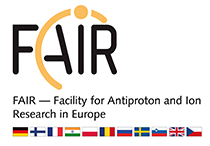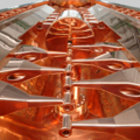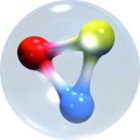
©
T. Ernsting for FAIR/GSI
GET_INvolved - What you can do (subjects)
Within the framework of the GET_INvolved programme, a broad range of topics is available for internships, traineeships and early stage research experiences.
The topics are appropriate for students and young researchers with first experiences or a background in:
- Physics
- Engineering
- Computational Science
- Mathematics
- Chemistry
- Biology
- Medicine
- Engineering
- Project Management
The projects are subject to availability. While submitting your research interest or application to the GET_INvolved programme, please always refer to the code given in parenthesis (CODE).
Nuclear and Hadronic Physics
- Nuclear and Hadronic Reactions (NH-RE):
Study of reactions between colliding heavy nuclei involving transport phenomena and creation of nuclear systems at high density and temperature, production of hadrons (baryons and mesons), photons, and leptons at ALICE, HADES and future CBM experiments (more)
- Hadron Physics with anti-protons (NH-Anti-P):
Developments and simulations for the PANDA detector at FAIR. Research and investigations related to antimatter, especiallyantiprotons. (more)
- Nuclear Spectroscopy (NP-SP):
Spectroscopy of highly excited nuclear states (more)
- Exotic Nuclei (NP-EX):
Investigations of nuclei at the limit of stability (super heavy – or neutron/proton-rich nuclei) and its implication for the nuclear synthesis (more)
- (Super) Fragment Separator (FRS-SuperFRS):
Separation and new physics with exotic atoms and nuclei (more)
- Nuclear Chemistry (N-CHEM):
- suitable for students interested in chemistry -
Chemical separation of short-lived nuclear reaction products, c.f. exotic nuclei (more)
- Theoretical Nuclear and Hadronic Physics (TH-NH):
Description of nuclear collisions & properties of hadronic matter at high densities and temperatures & finite temperature field theory & nuclear structure & nuclear astrophysics (more)
Atomic and Laser Physics Experiments at GSI Experimental Storage Ring (ESR) and with Ion Traps
- Highly Ionized atoms (AT-HI):
Interaction of highly ionized atoms with atoms, electrons, & light (more)
- Laser Spectroscopy (AT-LA):
Laser spectroscopy of atoms and ions (more here or here)
- Atomic Spectroscopy (AT-SP):
Spectroscopy of few-electron systems & nuclear effects on the atomic electron cloud (here)
- Warm Dense Matter Physics by using PHELIX laser (PHELIX):
Studying matter under conditions as in the interior of giant planet (more)
Application-Oriented Research
- Material Science (MATERIAL):
- suitable also for students in chemistry or technical engineering -
Modification of the properties of materials by impact with heavy ions and ion track technology, e.g. nanotubes & nanowires (more)
- Plasma Physics (PLASMA):
Production of highly compressed plasmas by heavy-ion bombardment (more)
- Biophysics (BIO-P):
- suitable also for students in biology or medicine -
Radiation damage of the DNA & studies of cancer therapy with heavy ions (more)
Services, Developments, and New Technologies (Suitable also for students in engineering or computer science)
- Accelerator developments (ACC):
- suitable also for engineering students -
Developments for the GSI/FAIR accelerator complex, including ion sources, high-intensity synchrotrons, storage rings with normal and superconducting magnets, antiproton separators and other components and services of the accelerator complex (more here or here or here)
- Radiation Protection (RAD-PR):
Designing the shielding at the whole accelerator facility and surveillance of radiation protection. (more)
- High-performance computing (HPC):
Developing software and hardware, handling Big Data and resource management. (more)
- Detector Laboratory(DETECT):
Developing detectors for various experiments. (more)
- Target Laboratory (TARGET):
Manufacturing targets that can be thick films, thin layers or thin films on standard frames as well as development of new target concepts in collaboration with the scientists. (more)
- Experiment Electronics (EL-EL):
Handling of readout, data acquisition, data analysis, as well as monitoring and control of detectors and detector systems. (more)
- Engineering (ENGIN):
Development and implementation the FAIR facility’s infrastructure such as vacuum and control systems, beam instrumentation, and electrical power systems (more, partly in German)
Engineering and Project Management
- Technological Development and Technology Transfer (TECHDEV-TECTRA)
Engineering, disseminating technolgoy developed at GSI and FAIR.
- Management and Administration (MAN-ADM)
Project management, administrative management at all devisions, management of in-kind contributions to GSI and FAIR.






